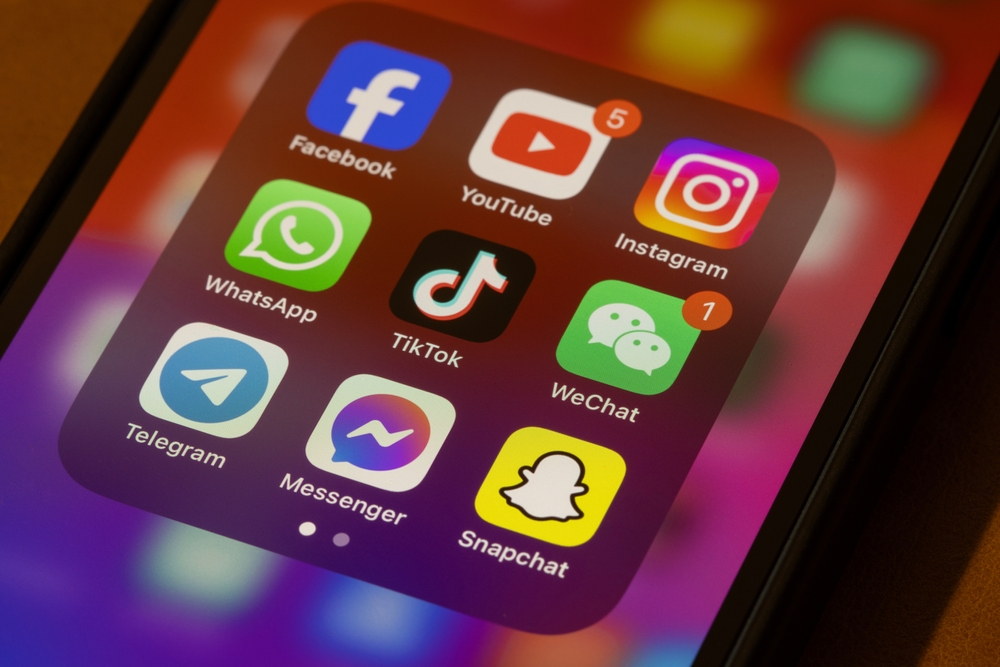According to a new report from PartnerCentric, which surveyed nearly 1,000 Americans of all ages in May 2025, 41% of Americans—and 48% of Gen Z—are actively planning to spend less time on social networks in 2025.
Though 99% of respondents said they use social media, 16% of Americans quit at least one social media platform so far in 2025; among Gen Z, that number ticks up to 18%.
“Gen Z is essentially voting with their thumbs—nearly half are dialing back on social platforms and [35% are] layering on screen-time blockers,” says Stephanie Harris, CEO and founder of PartnerCentric.
Rather than users being “social” on such sites, 43% of all social media users only use the technology to consume content, according to the survey, while just 7% create content and 50% interact with other content (e.g., liking posts and commenting).
With such a sizable chunk of users passively scrolling through social media feeds until something piques their interest, “brands that cling to interruptive tactics will find their messages unwelcome,” Harris explains.
“When you’re half-asleep scrolling through your feed, the content that really sticks is the stuff that feels like a friendly tap on the shoulder—something you instantly relate to and that solves a tiny problem faster than you can blink,” she continues. “It might be a two-second visual punch that sparks a laugh because you’ve ‘totally been there’ or a quick hack that turns an everyday headache into a minor victory. The secret sauce is creating moments that feel native to the platform so your audience doesn’t see a polished billboard bur rather something that could’ve come from their best friend.”
Google Search Is in Trouble
Thanks to the rise of generative AI, traditional search engine results are being replaced by instant curated answers tailored to user intent.
While Google Search has long dominated the space, new trends suggest its grip may be slipping for reasons beyond AI—especially among younger generations who are increasingly turning to platforms like TikTok (79% of Gen Z) and Pinterest (54%) for inspiration and product discovery.
According to the report:
- Only half of Gen Zers check Google first for product reviews compared to 60% of all respondents
- 10% of Gen Zers prefer TikTok to Google to find product information
- 28% of Gen Zers go to TikTok before Google to find recipes
- 33% of Boomers go directly to websites like Amazon to find information about a product instead of using Google
For marketers, these findings suggest that search behavior is fragmenting—and that winning attention means showing up in places you might have previously ignored.
In other words, optimizing for Google alone won’t cut it any longer; brands should rethink SEO through the lens of social discovery.
Community-first Channels Take Center Stage
While Facebook is still the most popular platform, with 86% of respondents spending an average of two hours a day on the social network, community-based forums are on the rise. (Facebook’s lion’s share of adoption may largely be driven by commerce—not social—with the average respondent spending $133 on Facebook Marketplace within the last month.)
According to the research, two out of every three Americans use Reddit to become part of communities of like-minded people, and 43% are on Pinterest. At the same time, 40% are active on Discord, including half of Gen Z, while 21% are on Substack.
“Reddit and Discord aren’t just new channels; they’re digital living rooms,” Harris says. “The first rule of Reddit is: Don’t look like a marketer. Your role is to listen and learn first.”
To do that, marketers can seed human-led conversation threads, sponsor AMA (Ask Me Anything) sessions, and partner with established moderators on value-driven community initiatives, Harris suggests.
This trend provides an opportunity to deliver value through content that encourages conversation—not clicks—and build trust from there.
“Over time, we earn the right to share expertise or product insights,” Harris says.
Check out PartnerCentric’s infographic featuring the survey results.







